Type "Toronto garden maintenance" into Google and you could spend a day just trying to figure out which of the listed companies best suits your needs. It seems the GTA has an abundance of people eager to mow your lawn, build you a patio, prune your plants, weed your garden, and make the snow go away.
Aden Earthworks
More than any of the other companies I talked to, Aden is a one-stop shopping trip for those interested in altering any or all outdoor aspects of their properties, be it stone installation, snow removal, lawn cutting, or gardening.
CEO Ben Zlotnick who started the company in 2003 under the name Aden Landscape and Design told me the maintenance part of the business appealed to him because:
it's not something that comes and goes in waves. Grass always grows and snow always falls.
Zlotnick assured me:
I would say, what's in the industry itself, we probably do 90 percent of the work in-house. There's only a number of small things that we don't personally do ourselves. We've been working with many of our subs for many many years, so far, and we've built up some great relationships.
Just in case you're getting visions of sandwiches or underwater transportation, "subs" refers to subcontractors: outside experts such as arborists whom Aden Earthworks brings in when their services are required.
While the business of gardening and landscaping has always been "green" in one sense, more and more environmental awareness is becoming common. Two of the Earthworks' specialities are green roofs (both installing and maintaining) and xeriscaping (which does not involve photocopying grass, but rather the creation of landscapes with low irrigation requirements).
Most of the green roofs the company deals with are on commercial buildings, but they have encountered a few residential ones:
There are some big advantages to putting in some green roofs for your property. There's different parts. There's going green as far as you're not going to use the equipment that you typically would use, and then the other side of it is you're going to create gardens that you don't need to use these types of machines. It can all be done by hand. And by doing it by hand, obviously there's tons of benefits associated with it for the environment.
On the aesthetic side of things, Aden Earthworks has won 12 Landscape Ontario awards since 2009 (the same year that Zlotnick's original company, Aden Landscape and Design, merged with Aesthetic Earthworks to form the current incarnation). When I asked Mr. Zlotnick how his company had achieved this, he modestly responded:
Well, you've got to do great work. We pride ourselves in the work that we do, so we're always trying to go after the different awards that are available. And you just want to create some fantastic, aesthetically looking gardens, and you want the customers to be happy, and you want it to be maintained so it's not something that you plant today, and then two years later you're going to be doing something [new] again. You want it to last, and be growing, and maturing for many, many years.
As for Aden's obvious financial and social media success, Zlotnick credits high-quality work and good customer service:
At the end of the day, you're happy with the quality of the job, and you didn't compromise on what it was that you put in there. And of course the client and the customer are extremely happy with the work.
All of his company's success has come at a price for Zlotnick:
When I started it, I was hands-on. I mean, I did all the work that needed to be done, from the maintenance, to the planting, to the stone. The whole bit.
These days, he's so busy running the company that he's less likely to garden at work than he is at home.
The Garden Girls
As their blog will tell you, the Garden Girls first hung up their shingle in 2006, when Darla Hauraney was working with a friend in her own garden:
One of our neighbours were saying that they needed help in their garden, and that we could go right on over.
Eight years later, there are 12 "garden girls" (ranging in ages from 20 to 70), weeding, pruning, and otherwise tidying the gardens around Oakville, Burlington, and Mississauga.
You may have trouble hiring the Garden Girls, because according to Ms. Hauraney they're already at full capacity, client-wise, at least until they hire more staff. As it turns out, "staff" isn't quite the right word. But if you're a floraphile looking for a job, you might want to give them a call:
We don't have employees. We're all independent gardeners, which is nice and a little different. So not everybody works every day, or, you know, each gardener requests when they want to work, and then we plan around that.
It's almost certainly not laziness that inspires this somewhat relaxed work schedule. Most of the gardeners involved have other jobs. Some even have their own businesses.
The garden business, it seems, is booming, especially when it comes to regular maintenance:
This year the ongoing maintenance exploded like crazy. Now everyone wants you even more often than the garden really needs. Most people work so hard these days they just want to come home and enjoy their space... There are huge possibilities, possibilities we can't even meet, because we, come April, we're usually filled up, even with the number of girls we've increased to.
Do they have to be girls? Well, sort of:
We do have boys that help us now and then, as long as they don't mind being called The Garden Girls. As a spin-off, my son decided to start his own. So he always does all our lawns, our mulch, rock, heavy stuff.
Despite the infusion of male sweat, some might say that Hauraney and her gang employ a somewhat feminine approach to their tasks, with an emphasis on elbow grease, low-tech solutions, and lots of chatter:
Some people, when they see us working, they come and talk to us because we're always talking and laughing and... we're not the quiet gardeners, because we are ladies.
Hauraney herself laughed throughout our interview, but this might just have been because she was about to leave for a vacation.
There's a lot of plain hard work behind the Garden Girls' high spirits. Along with maintenance, they also create new gardens and completely re-arrange old ones. I asked the original Garden Girl why she thought her company was doing so well:
I think people find we treat their gardens better than we would our own. And you know, sometimes when we go to a property and finish up the gardens, and have a little bit more time, we see their interlocking needs doing, or, you know, even things like putting their garbage back where it belongs kind of thing. Just the little things. And sweeping and blowing things off, so that when they come home it looks absolutely fantastic. That's what we like to do.
Hauraney also mentioned the almost ecstatic customer reviews that you can find on the Homestar website:
We really try to think about what the customer wants, because it's their garden. It's their own personal space. So that's what I think people see in the reviews we've gotten from people... We're just so lucky to find the best people. I don't know. They find us and we find them, somehow.
This work ethic also showed up when I inquired about Hauraney's favourite type of work:
Even if it's a tough garden, and a tough weeding garden where it's been overgrown for years and years, and you get it cleaned up, and you know, that line's back in and clean space, and you stand up, even though it was really hard work, and look back and say, "Wow! That looks really good..." We don't like too many of those, because they're so hard sometimes, the extreme makeovers, but when they're done, they're very satisfying for you and the homeowner.
Ecoman
It fell in my lap,
Jonas Spring said when describing how he got into the garden maintenance business. A bit like Ben Zlotnick, Spring started out with a landscaping business in 2003. But then:
Two years later, there was a woman who was retiring who had a gardening business, maybe, let's say, fifty clients... This woman was referred to me by a colleague, and we basically made an arrangement where, essentially, I bought the list off of her. She introduced me to all her clients, and that's how I started the gardening part.
This means that, like Aden Earthworks, Spring's company, Ecoman, can both landscape your property and look after it, even if it's on the roof (in fact, a year of maintenance is included in their green roof installation package).
Ecoman isn't as swamped as the Garden Girls (they're quite happy to have new clients, especially for landscaping), but their geographical range is quite limited. According to Spring, his company's stomping ground consists of "downtown Toronto, Annex, Parkdale, Forests Hill, Rosedale, a little bit of High Park and the Beach. That's pretty much it."
When it comes to the gardening part of his work, Spring chose to follow in the footsteps of the woman who sold him her client list:
I know you're going to quote this, but it's almost like old lady gardening. It's actually getting into the garden, moving plants around, dead-heading. As opposed to just a mow-and-blow. Because there's a lot of that going on. And we don't do that, for a number of different reasons, but we don't do it. The gardening that we do is actually more what you think people do in their back-yard gardening: "actual gardening."
And now, a word must be said about that "mow and blow" and why Ecoman doesn't do it. It's the opinion of Jonas Spring that:
the biggest wasteful expenditure that's harmful to the environment is the amount of blowing we do. I mean, mowing is bad enough, but the blowing is unbelievable. It's loud, it pollutes the environment, it eats up gasoline, and what is the benefit of it? Ultimately, we're moving organic material from A to B.
Weeding is another area that receives a more strategic, ecologically sound treatment from Spring's team. He told me of the time that he had to deal with an invasion of Canada tick trefoil on the rooftop garden of the Mountain Equipment Co-op (400 King Street West). The "weeds" in this case were benign native flowers, and Spring lacked the time and budget to manually yank out each of the hundreds of plants that had sprung up uninvited.
Instead of pulling or spraying, he opted to simply trim off the finished flowers to prevent the spread of seeds. No herbicides needed, just "pruners and a bag." Spring took some pains to stress to me how unnecessary a more ruthless method would have been:
There was nothing wrong with the plants. They were aesthetically pleasing, they provided pollination for a number of insect species that were there... and it was just a question of, you know, trying to be a bit of a referee and slow down the rate of colonization so that other plants have a chance to grow.
This is not to say that Spring is unwilling to completely remove unwanted plants. He told me about a particularly one-sided battle with dog-strangling vine in a ravine-side garden, and of the time that Ecoman employees had to "harvest" the mushrooms growing in a client's lawn. The fungal interlopers were likely a result of the mushroom compost that had been used under the sod on that property (something that Spring says has never happened again).
But never fear, Ecoman also uses duck manure, a substance not only high in nutrients, but also "really attractive", at least to Spring:
When you see the stuff it's like chocolate cake... and we've had great results with it.
Although the answer was already somewhat apparent, I asked Spring what made Ecoman stand out from the competition:
We keep the power tools to a minimum. We charge by the minute, we do organic amendments, we offer plant lists and consultations beyond maintenance, so if there's a question of "should I get rid of this shrub, and what should I replace it with?" that kind of stuff. So we offer gardening advice.
Ecoman also performs what Spring calls "exterior-property garden inspections," which examine environmental factors such as tree canopy and soil, identify the flora (which is important if you've just moved in or don't know plants very well), and give recommendations for their care.
Blooming City
The last garden company here is also the most specialized. Blooming City sprang into being in 2003 (which seems to have been a very good year for garden companies), under the ownership of David Mordecai. It has since blossomed into "the gardener's gardener" â according to the company website.
Like Ecoman, Blooming City's small territory lies deep in the heart of Toronto. The area is described in more detail on the website, but roughly speaking, it runs no farther south than Lakeshore Drive, no farther north than Lawrence Avenue, and somewhere in between the Don Valley Parkway and Parkside Drive to the east and west.
So, what does Blooming City do? In Mr. Mordecai's own words:
We really are more gardeners than what most people understand as landscapers. Pretty much all design, plant maintenance, and planting is work we do ourselves. We generally don't do lawn maintenance unless your lawn is a relatively small component of your garden. We do have people we recommend for lawn work. Although we have done some construction work ourselves in stone, wood, concrete, and interlock, most hardscaping is work that we contract out or do in conjunction with a contractor that our clients already have a relationship with.
You can learn a lot about a company by the way it deals portrays its customers, and Mr. Mordecai was kind enough to talk about his own at some length via email:
Even if they don't garden themselves, most of our clients are passionate about, and deeply attached to, their gardens. Many of our clients are seniors, which is why they can't garden as much as they used to. I suspect some of our clients would say they feel viscerally connected to plants and gardening.
It's not only about having an attractive space, it's about the experience of gardening and having a relationship with your garden. That is one of the reasons we do not call ourselves "landscapers."
Also, our clients are prepared to invest significantly in their gardens and want to do things thoroughly. Whether that is by taking the two or three hours a week that it can take to water even a small garden properly, installing a sprinkler system, or engaging us to handle regular maintenance. We are cautious about how we work with clients with limited gardening experience who are not prepared to invest in a watering system, or proper soil preparation.
I'm a little wary of the repeated word "invest," but in this case, you may be getting what you pay for (or invest in). When I asked Mordecai for some secrets to his company's success, he didn't cite any awards, accolades, or social media prestige (apparently, Blooming City's online popularity is a result of word of mouth only). He did mention hard work:
More than anything, I would say dogged effort, commitment, and determination. Our success is very personally defined: we are a modest business but that's largely because the business exists in part to satisfy my desire to have fulfilling experiences with other gardeners.
At Blooming City, it seems, everything is about relationships (between company and client or between gardener and garden). We didn't stray far from the subject long, even when I asked Mordecai to describe some particularly pleasant gardening experiences:
I would say the most satisfying experiences are when gardens really feel like a partnership: when, for example, we do some of the work but the garden clearly would not be as healthy and beautiful as it is unless the clients were deeply involved. Some of my clients are excellent at expressing their personalities through their gardens. It's a real pleasure to work with them so that they can do so more successfully.
JN00MC



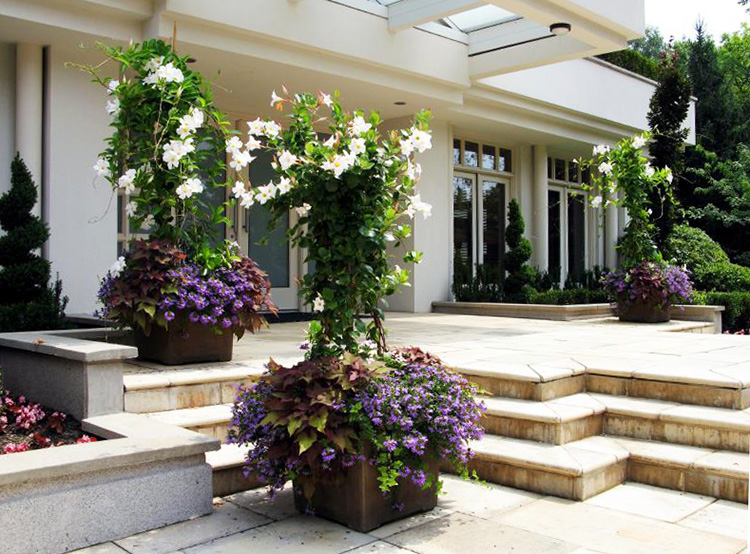
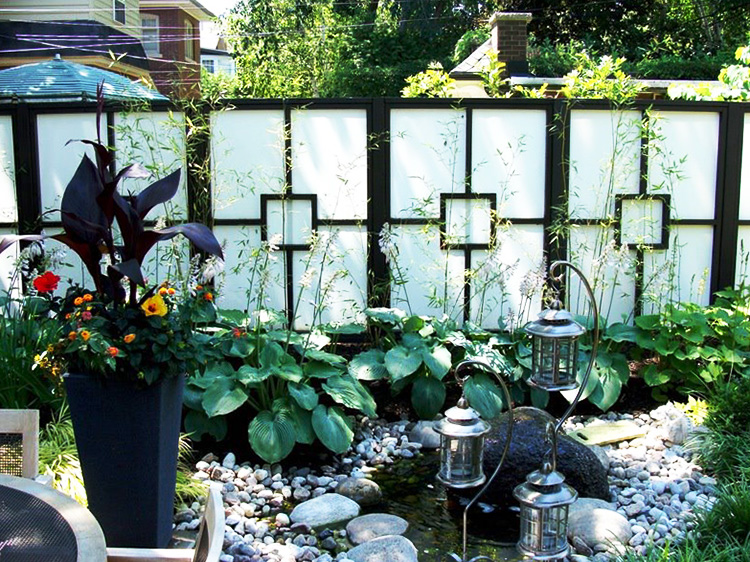
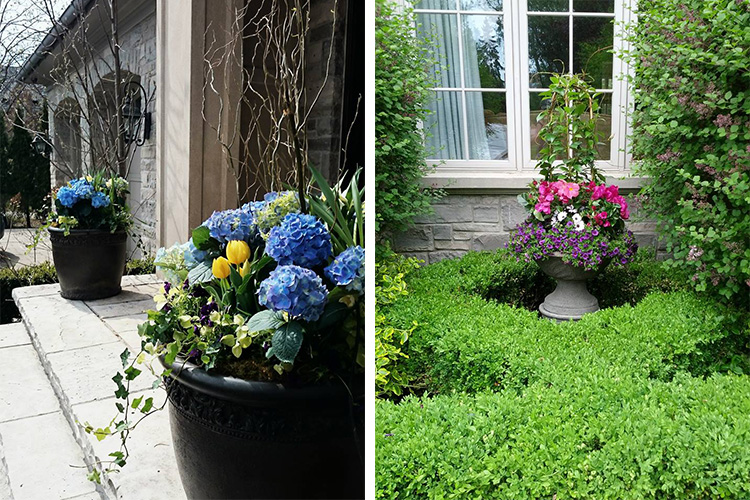
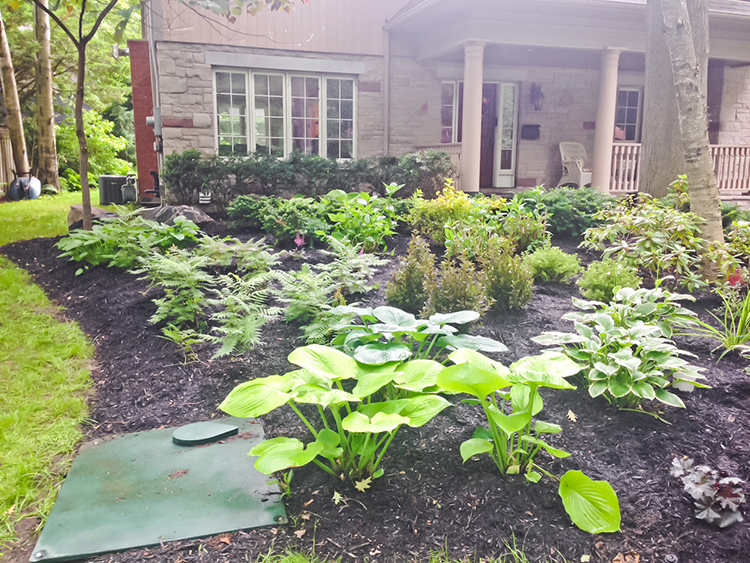

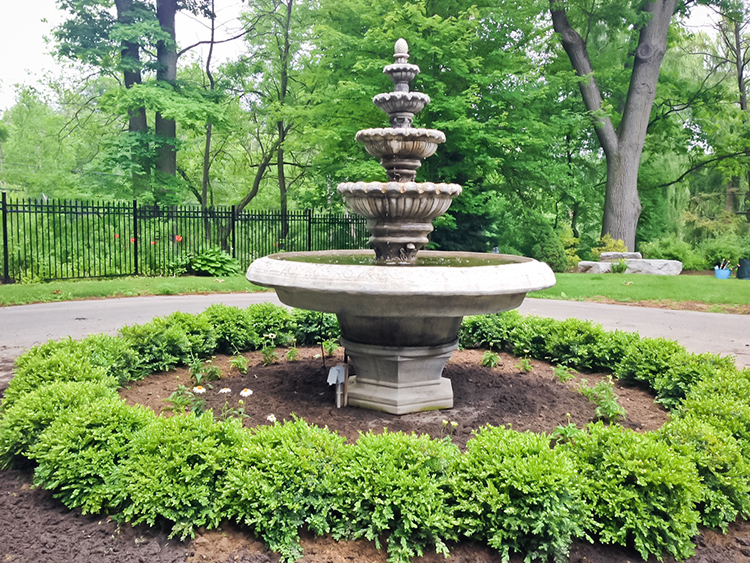

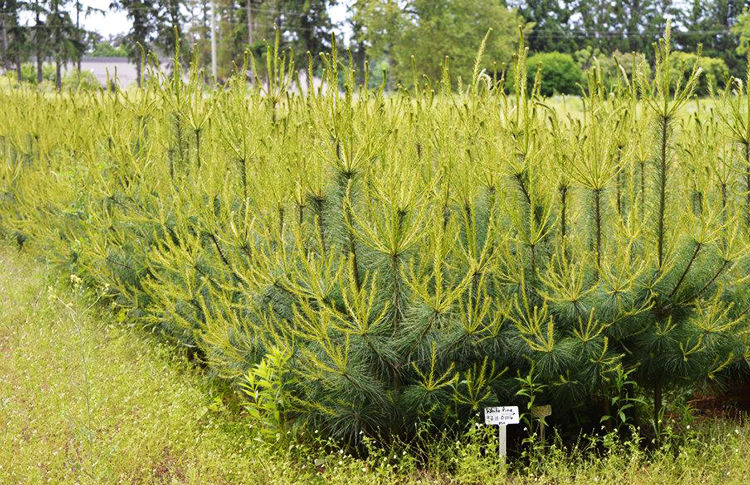
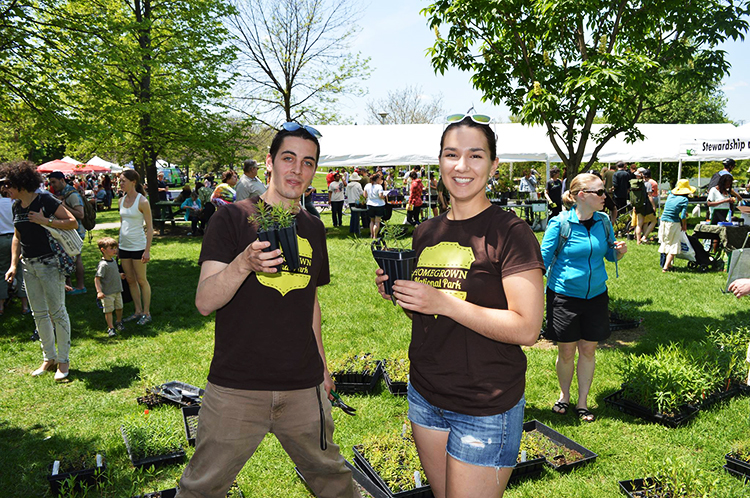
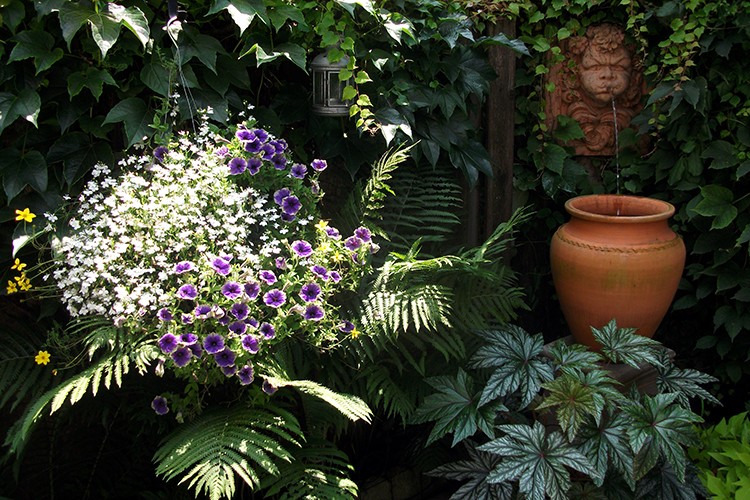
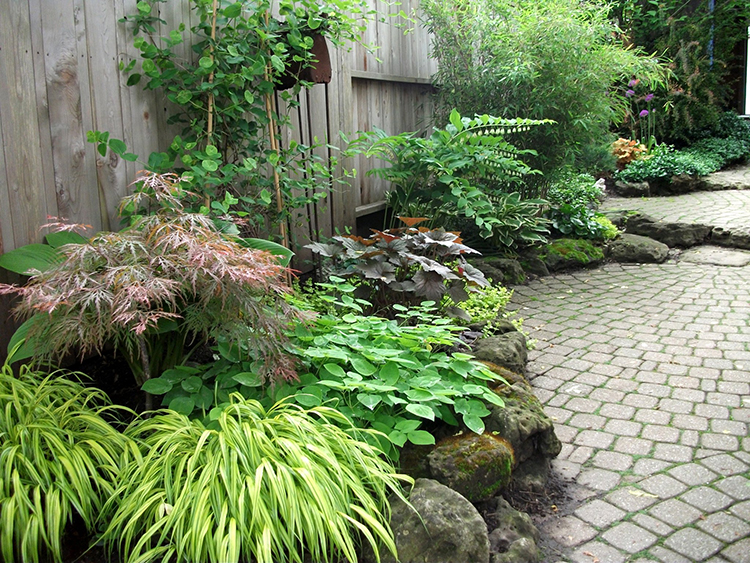
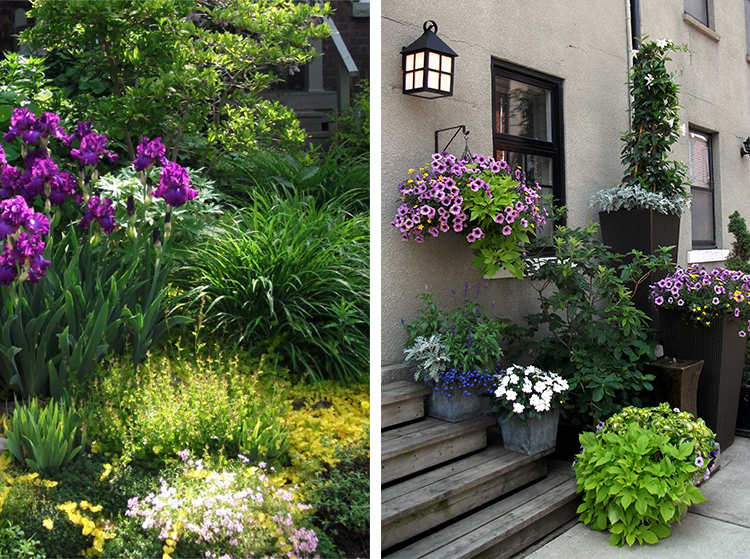
Toronto boasts a variety of garden companies catering to diverse landscaping needs. What distinguishes top garden companies in Toronto in terms of service and design?